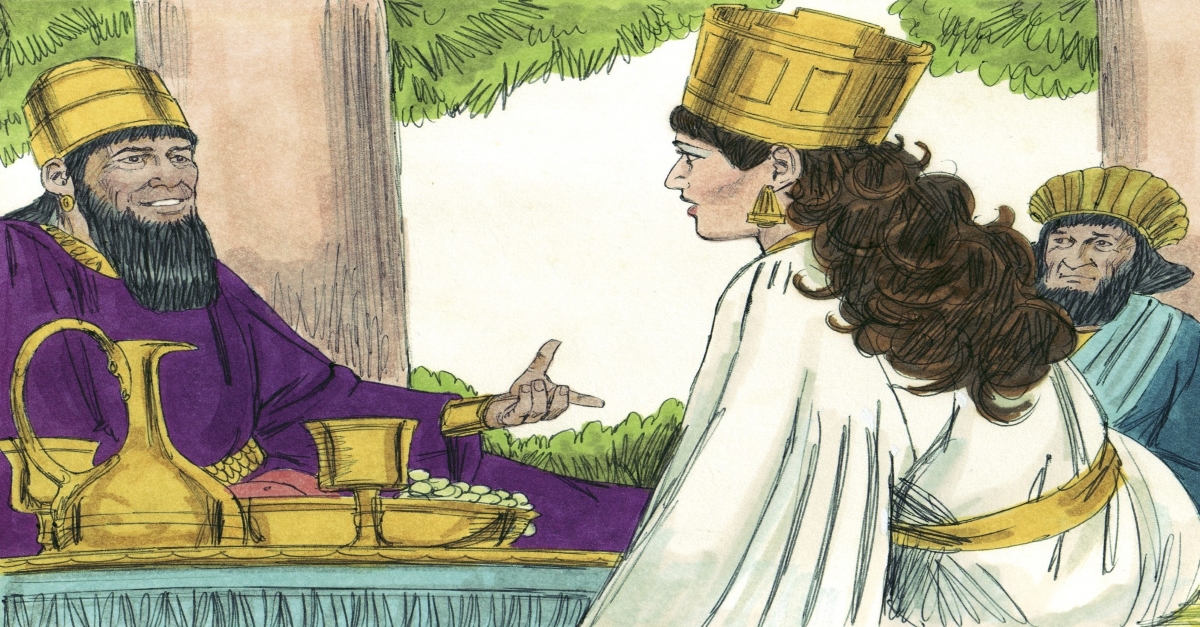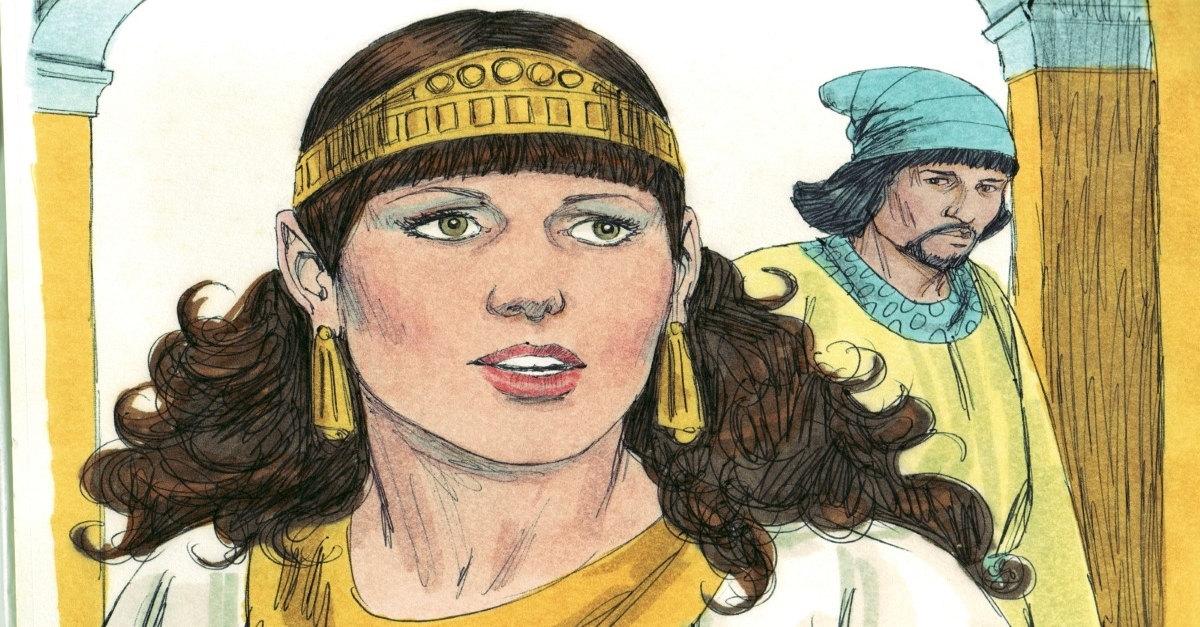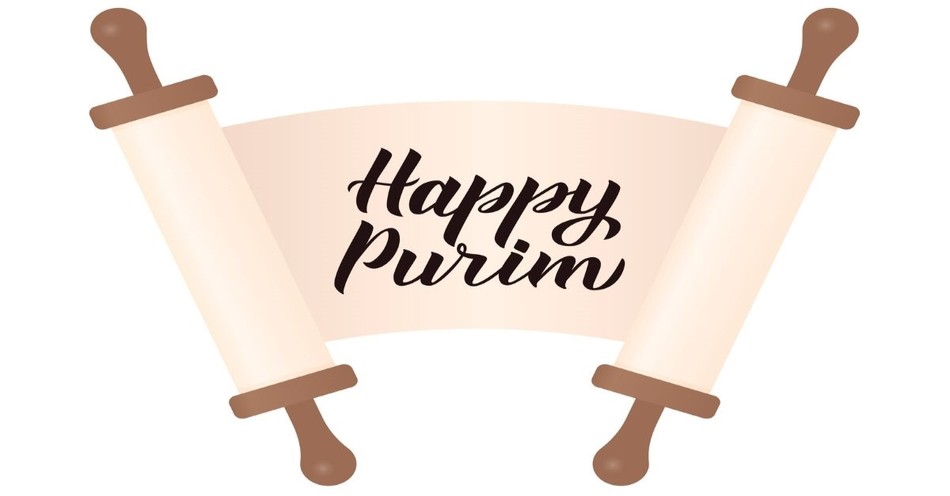Purim is an annual commemoration of the Jewish people’s deliverance from annihilation, as described in the book of Esther. Young and old alike look forward to the feasts, parades, and community gatherings that make this springtime celebration the most festive event on the Jewish calendar.

What Is the Historical and Biblical Origin of the Purim Celebration?
The Hebrew Bible records the providential events that led to the first Purim in the Megillah of Esther, which is the same as the Old Testament book of Esther. The Biblical narrative takes place in Susa, Persis, modern-day Iran, and covers King Xerxes’ reign from 486–465 B.C.
King Xerxes, also known as Ahasuerus, ruled over 127 provinces stretching from India to Cush. Desiring to flaunt his wealth and assert his dominance over his subjects, he held a six-month-long banquet for all the nobles and military leaders in the province.
At this elite party’s conclusion, King Xerxes opened his doors to every citizen in Susa for a week-long grand finale celebration. While feasting and carousing with all the men of his kingdom, he summoned his wife, Queen Vashti, so that his guests could ogle her beauty. Queen Vashti declined the king’s invitation, therefore defying his command.
The Queen’s refusal humiliated Xerxes. Fury ignited the king’s wine-soaked temper, and he stripped Vashti of her title and banished her from the kingdom with an irrevocable decree.
After the king sobered, he experienced deep regret over his rash decision to exile Vashti. Recognizing the king’s remorse, his attendants devised a plan to secure a new Queen for Xerxes. They rounded up the most beautiful virgins in the land and delivered them to the royal harem. The women underwent extensive beauty treatments for one year to prepare themselves to audition for the king’s affection. A young Jewish woman named Esther outshined all the other women. So, King Xerxes placed the royal crown upon her head and made her his wife.
During one of Queen Esther’s coronation celebrations, her cousin Mordecai, who had raised her, overheard two royal officers plotting to assassinate the king. When he informed Esther of the evil ploy, she relayed the information to her husband, who had the two offenders arrested and hung. The king also recorded the account of Mordecai’s faithful service in the Royal Chronicles.
Upon Mordecai’s advisement, Esther concealed her Jewish heritage from the king and everyone else in the palace. But her secret became volatile when she learned that Haman, the king’s chief advisor, harbored deep disdain for the Jewish people.
Haman persuaded the king to sign a decree that would “destroy, kill and annihilate all the Jews—young and old, women and children—on a single day.” (Esther 3:13). Haman then cast pur or lots to determine when the decree would be carried out. The 13th day of the 12th month of Adar became the appointed time for the holocaust.
Mourning over the Jews’ death sentence, Mordecai sent word to Esther and pleaded with her to ask the king for mercy. Queen Esther responded to his request, reminding him that any woman who dared appear uninvited before the king risked losing her life.
Mordecai sent another message to Esther that included an exhortation and warning. “Do not think that because you are in the king’s house you alone of all the Jews will escape. For if you remain silent at this time, relief and deliverance for the Jews will arise from another place, but you and your father’s family will perish. And who knows but that you have come to your royal position for such a time as this?” (Esther 4:12).
Esther agreed to intervene on behalf of her people, but she requested that Mordecai first assemble every Jew in the province to pray and fast for three days. After the third day, Esther donned her royal robes and courageously stood in the king’s court. By God’s grace, Xerxes lowered his golden scepter, pardoned Esther for the intrusion, and granted her entrance into the throne room.
Pleased with her beauty and presence, Xerxes accepted Esther’s invitation to attend a banquet she had prepared for the king and Haman that day. During the feast, Esther extended another invitation to the two men to join her the following day for a second banquet.
Elated by Queen Esther’s preferential treatment, Haman left the royal palace boastful and in high spirits. But his joy didn’t last for long. When Mordecai, who regularly stood by the king’s gate, refused to bow to him, Haman returned home in a foul temper. His wife and friends convinced him that the only way to regain his dignity would be to “Have a pole set up, reaching to a height of 50 cubits, and ask the king in the morning to have Mordecai impaled on it.” Their suggestion satisfied Haman’s wounded ego, and he wasted no time implementing the plan.
That same evening sleep eluded the king. When he commanded that his servants read to him from the Royal Chronicles to settle his restlessness, he discovered that Mordecai had never received a reward for saving the king’s life. When the king asked Haman for recommendations on rewarding a man deserving honor, Haman assumed the king intended to pay him the tribute. But he was shocked and horrified to discover that his enemy, Mordecai, would be the recipient of the king’s highest honor—at Haman’s suggestion and hand.
During Queen Esther’s second feast, she exposed Haman as a vile adversary and begged King Xerxes to rescue her and all the Jewish people from Haman’s murderous decree. Enraged by his chief advisor’s disloyalty and deceit, the King condemned Haman to death on the very pole Haman had erected for Mordecai.
Haman’s annihilation decree bore the royal seal, making it unchangeable. But King Xerxes gave Mordecai, his new chief advisor, permission to issue an additional edict that granted the Jews consent to defend themselves. On the 13th day of Adar, the battle raged throughout the Persian Empire, and God granted the Jewish people a monumental victory over their enemies that spilled into the next day.
From that time till now, the Jewish people have honored the holiday called Purim to commemorate “the time when the Jews got relief from their enemies, and as the month when their sorrow was turned into joy and their mourning into a day of celebration” (Esther 9:22).

What Does Purim Mean?
The word Purim is an ancient Persian word that means “lots.” Haman plotted against the Jews and cast lots to determine the day of their destruction. But what the enemy meant for harm, God used for good. Although God’s name is not used once in the book of Esther, His miraculous, unfolding plan of redemption appears in every scene of the narrative. God faithfully delivered His people from their enemies that day, and today they still celebrate the victory in the manner Mordecai prescribed.
How and When is Purim Celebrated?
According to the Hebrew calendar, the annual commemoration of Purim occurs on the 14th day of Adar. In 2023, the Purim celebration will begin on Monday night, March 6, and continue through Tuesday, March 7.
Just like Esther, Mordecai, and all their Jewish neighbors fasted and prayed for God’s deliverance, today’s Jewish people fast and pray for salvation the day before Purim. Then they celebrate with feasts, costumes, carnivals, acts of service, parades, and lively readings of the Megillah.
Here are the four mitzvot, or sacred acts, associated with the Purim celebration:
1) The reading of Queen Esther’s story from the Megillah. Observers of Purim listen to an interactive public reading of Queen Esther’s story twice during the holiday. The reader chants the story in Hebrew from the ancient text handwritten on a parchment paper scroll. Dressed in festive costumes to commemorate God’s hidden yet sovereign presence during the story, listeners create a joyful ruckus at the mention of Hamman’s name and cheer during turning points in the plot. Prayers and blessings are also part of this lively gathering.
2) Charitable giving to at least two needy people. As part of the original instructions for the Purim celebration, today’s Jews still “observe the days as days of feasting and joy and charitable giving, [matanot l’evyonim] to the poor” (Esther 9:22). During the daylight hours of Purim, each child and adult participate by giving money or goods to at least two people in need. In place of personal donations, participants can place their offerings in a designated box at the Synagogue for distribution. On that day, anyone needing help receives assistance without question.
3) Sending at least two ready-made food items to a friend or neighbor. On Purim, each adult sends at least two prepared food items to a close Jewish acquaintance. This act of kindness, or Mishloach Manot, symbolizes the unity and harmony of the Jewish people brought about by God’s deliverance. The gift also ensures that every Jewish person has the means to enjoy a proper Purim meal.
4) Partaking of the Purim feast. The story of Purim begins at King Xerxes’ feast and concludes after queen Esther’s banquets for the king and Haman, so it makes sense that part of the Purim festivities would include lavish dining. The Purim feast, or Seudah, consists of a sumptuous meal that features meat, side dishes, sweets, and plenty of wine.

What Can Christians Learn from Purim?
Purim is not only a commemoration of the Lord’s deliverance but also a celebration of His invisible hand at work through people and circumstances. In Queen Esther’s story, God’s strategic moves and countermoves were difficult to discern while in progress. Still, the culmination of every divine coincidence proved no less miraculous than the parting of the Red Sea.
God still works behind the scenes to accomplish His purposes in the lives of His children. When trouble comes, and we’re guaranteed in scripture that it will come (John 16:33), God’s presence and intervention may be imperceivable. But even when our perception fails, by faith, we can trust that Christ is working in us, through us, and for us to see to completion the good work He began (Philippians 1:6).
Queen Esther chose to take up the cause for her people, even at the risk of her own life. But she knew she dared not rely on her strength and power for success. Just like Esther surrounded herself with an army of prayer warriors before she entered battle, God has given each believer a place within His church. Together, in Him, we’re one body, one spirit, called to one hope (Ephesians 4:4).
Finally, had King Xerxes refused to lower his scepter, not only would Esther have been denied access to her husband—the law of the land required her execution. Today, Jesus is our scepter (Numbers 24:17). Anyone who places their trust in Him gains full access, through His blood, to the throne of God. He provides pardon to all who receive His son by faith. Purim is a joyous and delightful celebration of God’s deliverance, but all the festivities and feasts are just a foretaste of the ultimate redemption fulfilled in Jesus Christ our Lord.
Cover Photo Credit: Getty Images/Vera Fedorova
This article is part of our Bible resource for understanding the significance and meaning of biblical phrases and ideas. Here are our most popular Bible articles to grow in your knowledge of God's Word:
Promises of God in the Bible
Is "This Too Shall Pass" in the Bible?
What Was the Ark of the Covenant?
Top 10 Bible Stories for Kids
“Iron Sharpens Iron” in Proverbs 27:17
"Fearfully and Wonderfully Made" in Psalm 139
“Be Still and Know That I am God” in Psalm 46:10
"No Weapon Formed Against Me Shall Prosper" - Isaiah 54:17



